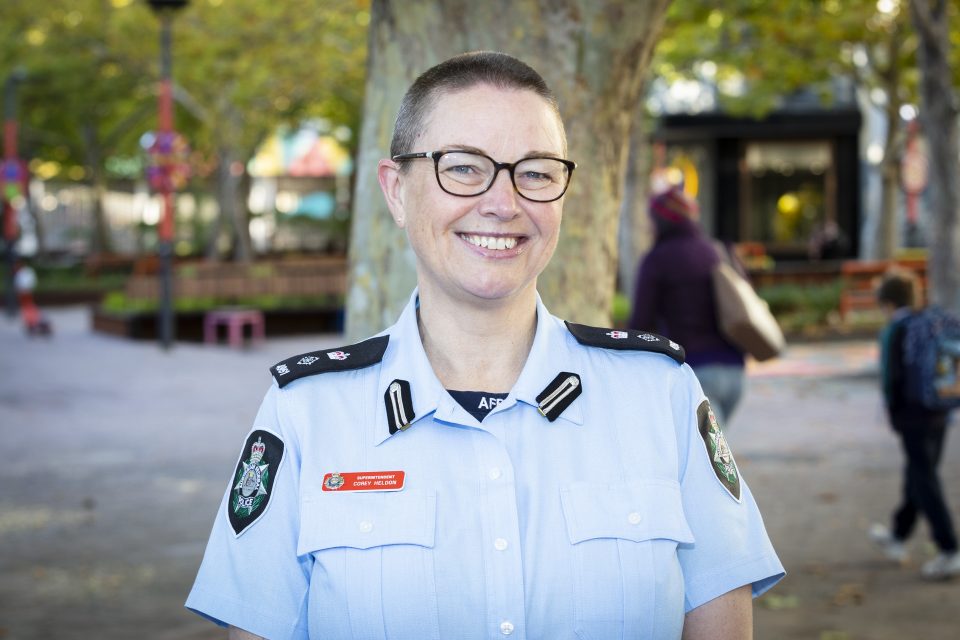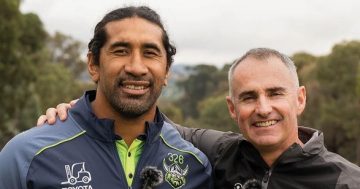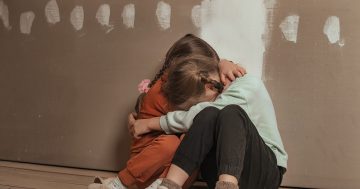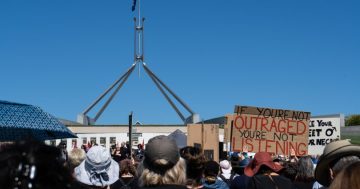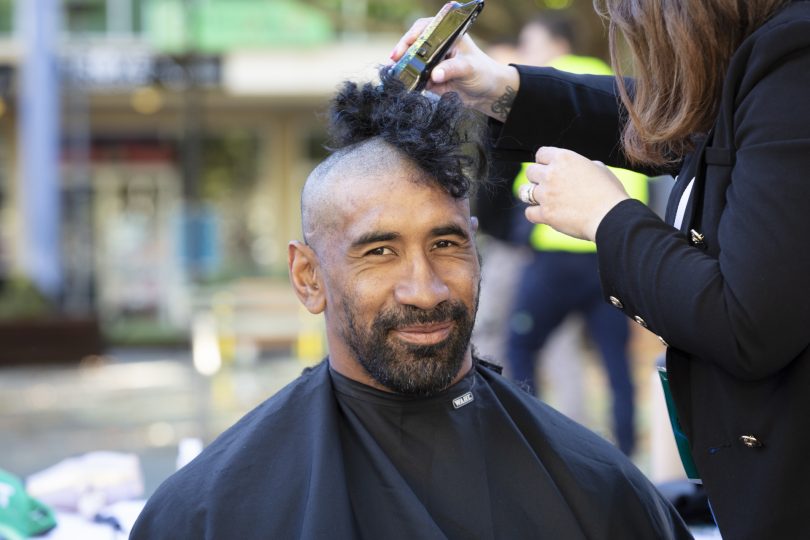
Raiders prop Sia Soliola at Shave for the Brave on Monday morning (15 March). Photo: Thomas Lucraft.
Two dozen advocates and community leaders turned out on a brisk Monday morning (15 March) before the mercury tipped double digits to have their head shaved and raise money for the Domestic Violence Crisis Centre (DVCS).
Everyone from frontline domestic violence protection workers, police officers, radio hosts, public servants, NRL players and lawyers turned out for the Shave for the Brave event, raising more than $90,000 as of Monday afternoon.
Inez Hargaden, who works on the frontline for DVCS, said she put her hand up for the shave as she directly sees the impact the funds have on people who come forward and use the service.
“We will get to be the ones handing things over and visiting clients in accommodation, so I couldn’t pass up the opportunity to do it,” she said.
“The funds will be amazing, to be able to offer someone accommodation or food or petrol can be the difference between them leaving or staying.
“If we can be the vessel that helps them make a decision to keep them safe, a decision they wouldn’t have been able to make otherwise, then that makes all the difference. That saves lives.”
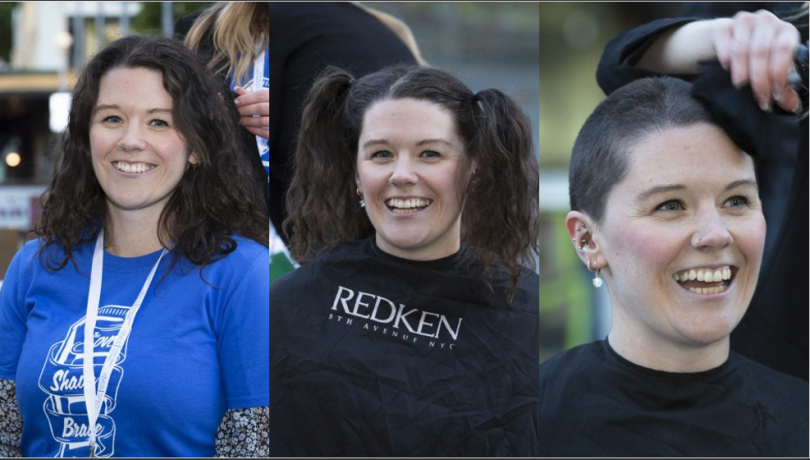
Inez Hargaden, who works on the frontline for DVCS, donated her locks to the cause. Photo: Thomas Lucraft.
Respectful Relationships Unit Manager at the Australian National University and violence prevention advocate, Sue Webeck, said the awareness raised and the conversations started within the community were just as important as the donations.
“I am at a loss at what else we need to do as a community,” she said.
“We need to be having these conversations. We need to be supporting the services that are responding, but we actually need to be getting to a place as a community where violence is not happening in relationships.”
The shave coincided with tens of thousands of women marching across the country, including thousands at Parliament House in Canberra, to protest gendered violence.
Speakers shared experiences of sexual abuse and violence, and called for change within the community.
It was a sentiment echoed by Canberra Raiders prop Sia Soliola and CEO and director of Blumers Lawyers Mark Blumer, who said a community-wide approach, including programs and support services to educate men, were needed to combat the violence.
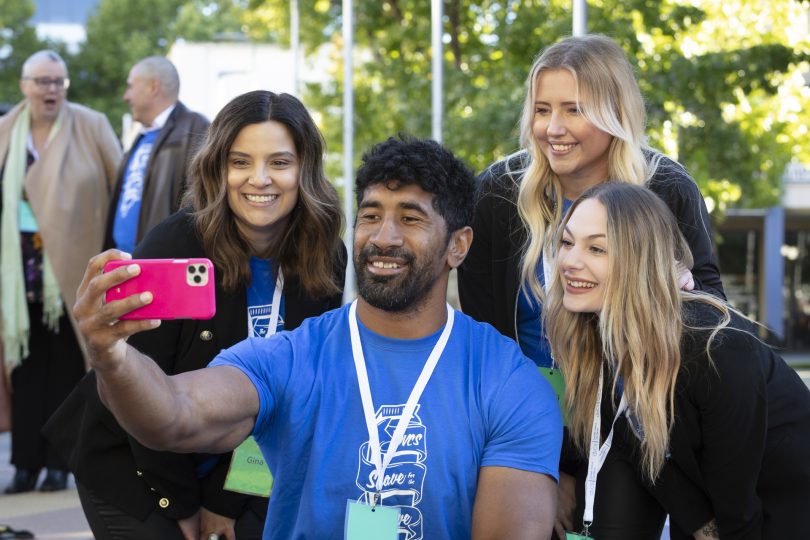
One ‘fro to go, please; Sia Soliola was a late addition to the Shave for the Brave lineup. Photo: Thomas Lucraft.
“Domestic violence is a really big thing that us guys need to be open about,” Mr Soliola said.
“It is quite a courageous thing [to talk about mental health]. There is a lot of stigma about us being able to handle things.
“It is not just now. It goes back to when we were younger, but I can start to see a shift now. A lot of guys are reaching out and helping everyone out.”
Mr Blumer said men need to learn how to deal with their emotions and seek help, as opposed to resorting to violence.
“Men need to learn other ways of communicating than with violence because what happens is that they do not know how to articulate their feelings so they resort to their physical strength,” he said.
“Leadership is important but it is really about peers. A lot of men do not want to be that stereotype, but to break out of that stereotype can be quite difficult.
“Our culture needs to change. We need to be free. It is not just about us freeing them. It is about us freeing us so that we do not have to oppress anybody.”
To donate, visit Give Now or DVCS.




